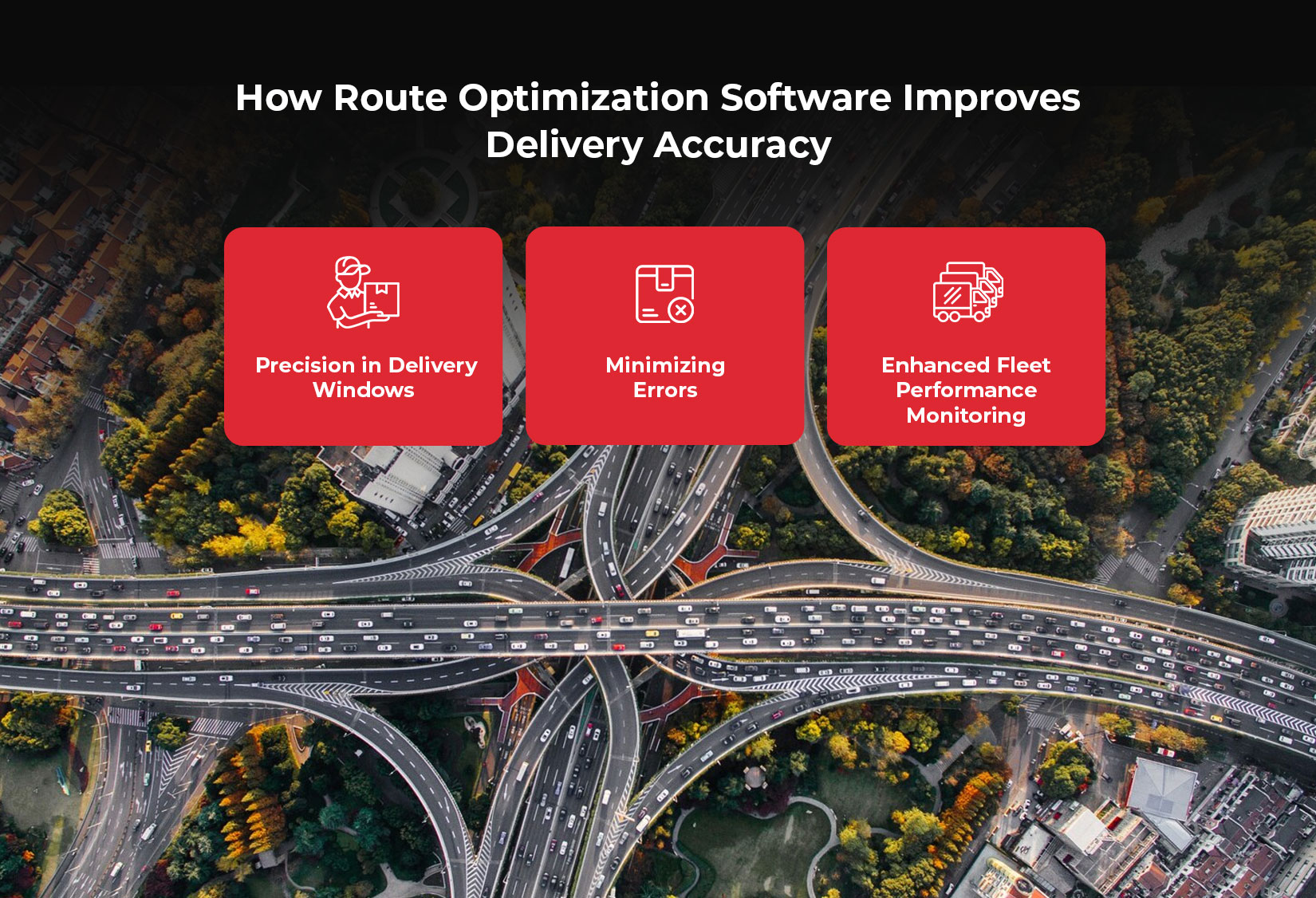In today’s fast-paced logistics industry Efficient delivery operations are critical. Businesses are constantly searching for innovative solutions to reduce costs, enhance customer satisfaction, and streamline operations. One such solution that has revolutionized the logistics landscape is route optimization software. Designed to address the complexities of modern delivery demands, this technology significantly improves efficiency and accuracy in delivery operations.
What is Route Optimization Software?
Route optimization software is a tool that indicates the most efficient routes for deliveries. The software considers factors such as traffic, weather, distance and delivery time windows. By analyzing data in real-time, it ensures that fleets follow the best possible routes, reducing travel time and operational costs. It is a critical asset for businesses managing multiple delivery stops, helping them enhance productivity and customer satisfaction.
The global route optimization system market was valued at $4.57 billion in 2020 and is projected to reach $16.99 billion by 2030, as per Allied Market Research reports that. This indicates the growth at compound annual growth rate (CAGR) of 14.3%. The rapid growth underscores the increasing reliance on technology to optimize delivery logistics.
How Route Optimization Software Saves Time

1. Streamlining Delivery Routes:
For companies managing fleets or handling multiple delivery points daily, route optimization solution simplifies the complete task of route planning. Instead of relying on manual methods, businesses can use route planning and optimization software for logistics to create precise and efficient routes in seconds. This automation saves hours, instead of spending them on analyzing maps and schedules.
A study by McKinsey found that businesses using digital tools for logistics planning, including route optimization, experience up to a 30% improvement in operational efficiency. For businesses dealing with high delivery volumes, this translates to significant time savings.
2. Real-Time Adjustments:
Delivery schedules are often disrupted by unpredictable factors such as traffic congestion, road closures or last-minute customer requests. The best route optimization system for fleets provide real-time updates, ensuring that drivers can quickly adapt to changes without causing major delays. This ability to recalibrate routes on the go can reduce idle time by as much as 20%, according to a report by Frost & Sullivan.
3. Efficient Management of Multiple Delivery Stops:
Planning routes with multiple delivery stops can be challenging without the right tools. Route optimization technology for multiple delivery stops calculates the most efficient order for deliveries, ensuring minimal backtracking and fuel usage. Research by the National Renewable Energy Laboratory found that optimized routes can reduce fuel consumption by up to 15%. This helps in saving time and lowering operational costs.
How Route Optimization Software Improves Delivery Accuracy

1. Precision in Delivery Windows:
One of the main challenges in logistics is meeting tight delivery times. Route optimization software uses algorithms that consider time constraints, ensuring drivers arrive at the right place at the right time. This precision improves customer satisfaction, which is crucial in sectors like e-commerce and food delivery. A survey by PwC revealed that 88% of consumers are willing to pay more for same-day or time-definite, emphasizing the importance of delivery accuracy.
2. Minimizing Errors:
Human errors in route planning can lead to missed or delayed deliveries, which damage a company’s reputation. By relying on route optimization software for delivery efficiency, businesses can minimize errors and ensure seamless delivery operations. Studies indicates that automated logistics tools can reduce delivery errors by as much as 50%, improving overall reliability.
3. Enhanced Fleet Performance Monitoring:
Many route optimization tools include fleet tracking and analytics feature. These insights allow logistics managers to monitor driver performance, fuel usage and route adherence. With data-driven decisions, businesses can continually refine their delivery strategies, leading to an average 25% improvement in delivery reliability, according to Deloitte.
Environmental Benefits of Route Optimization Software
1. Reduced Carbon Footprint:
By optimizing delivery routes, businesses can significantly cut down on fuel consumption and emissions. This aligns with global efforts to combat climate change. The Environmental Defense Fund reports that delivery businesses can reduce their greenhouse gas emissions by up to 20% using route optimization software.
2. Efficient Use of Resources:
Minimizing unnecessary travel reduces wear and tear on vehicles, leading to longer lifespans for fleet assets. This not only saves but also reduces the environmental impact of frequent vehicle replacements.
The Economic Benefit of Route Optimization Software
1. Reduced Operational Costs:
Fuel and labor are two of the most significant expenses in logistics. By optimizing routes, businesses can cut fuel consumption and reduce overtime for drivers. A study by ABI research found that fleet operators using route optimization software saved an average of 12-20% on fuel costs annually.
2. Improved Asset Utilization:
Optimized routes mean fewer vehicles are needed to complete deliveries, improving overall fleet utilization. This allows companies to handle growing delivery volumes without proportional increases in resources. Gartner reports that businesses implementing fleet optimization solutions often achieve a return on investment (ROI) within 12 to 18 months.
3. Fewer Delivery Failures:
Missed deliveries cost businesses both financially and reputationally. By ensuring accurate and timely deliveries, route optimization software minimizes the likelihood of failed delivery attempts, which can save companies substantial amounts annually.
Choosing the Best Route Optimization Software for Your Business
Selecting the right route optimization solution depends on factors like fleet size, business type and specific operational needs. Features to look for include:
– Real-time traffic updates.
– Integration with existing logistics systems
– Scalability for handling growing delivery demands
– User-friendly interfaces for drivers and managers
The best route optimization software for fleets should also offer robust analytics and reporting capabilities, enabling continuous improvement in delivery operations.
Conclusion
Route optimization software is a game-changer in logistics, saving time, reducing costs, and enhancing delivery accuracy. By automating route planning and enabling real-time adjustments, it ensures businesses meet customer demands efficiently. The use of tools like route planning and optimization software for logistics has become indispensable in today’s competitive market, where speed and accuracy are key differentiators.
As the logistics industry continues to evolve, investing in route optimization system is no longer a luxury but a necessity for businesses aiming to stay ahead. Embracing this technology not only drives operational efficiency but also builds a reputation for reliable and timely deliveries, ensuring long-term success. Click on the red button below and book a demo with LogiNext to get the best software today.
3





















